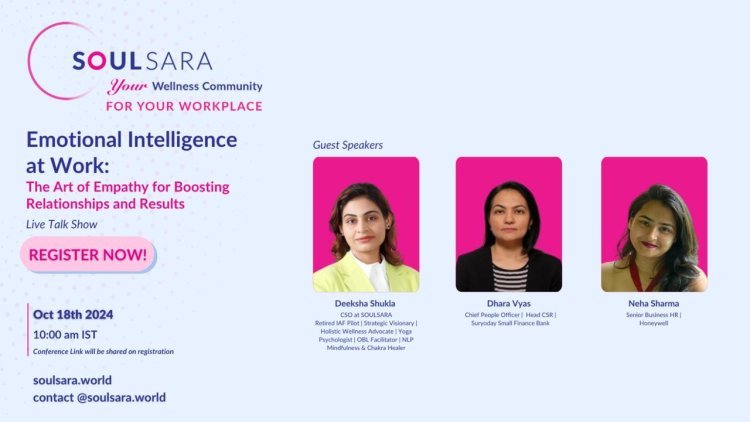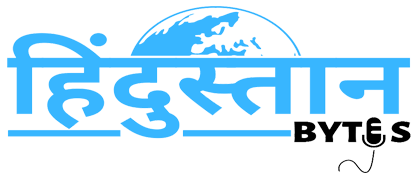Emotional Intelligence at Work: The Art of Empathy for Boosting Relationships and Results

In high-pressure work environment, technical skills alone are no longer enough to achieve success. Emotional Intelligence (EI), the ability to understand, manage, and utilize emotions effectively, has emerged as a critical factor in enhancing workplace relationships, leadership capabilities, overall employee wellness and performance. But what exactly is emotional intelligence, and how can it transform your organization?
The Power of Emotional Intelligence in the Workplace
Emotional Intelligence is often defined by five core components: self-awareness, self-regulation, motivation, empathy, and social skills. These components together allow individuals to navigate social complexities, resolve conflicts, and lead others more effectively. Research shows that emotionally intelligent leaders not only foster more engaged and loyal teams but also drive higher organizational performance.
According to a 2023 report by Harvard Business Review, employees with high emotional intelligence are 29% more productive than their peers with lower emotional intelligence. Additionally, a study by TalentSmart found that EI is responsible for 58% of job performance across various professions. It's clear that enhancing emotional intelligence at work can bring about measurable improvements, from increasing job satisfaction to reducing turnover.
Emotional Intelligence and Empathy: A Game Changer
At the heart of emotional intelligence lies empathy—the ability to understand and share the feelings of others. In a diverse and dynamic workplace, empathy plays a crucial role in building trust, fostering collaboration, and preventing conflicts. A study by Businessolver’s 2023 "State of Workplace Empathy" report revealed that 90% of employees believe empathy is key to an organization’s success, yet only 50% feel their leaders demonstrate empathy consistently. Bridging this gap through emotional intelligence training and awareness can significantly improve workplace culture, employee engagement, and performance.
Empathy also has a direct impact on employee well-being. Employees who feel understood and supported by their leaders are less likely to experience burnout and more likely to stay engaged in their work. This connection between empathy, employee well-being, and productivity is something that HR managers and leaders need to focus on for long-term success.
Why Attend the Webinar?
To help organizations better understand and leverage the power of emotional intelligence and empathy in the workplace, SOULSARA is hosting a webinar titled "Emotional Intelligence at Work: The Art of Empathy for Boosting Relationships and Results."
Scheduled for October 18th from 10:00 AM to 11:00 AM, this one-hour session will offer deep insights into how emotional intelligence can transform workplace dynamics, enhance leadership skills, and drive both individual and organizational success.
During the webinar, expert speakers will share practical strategies for developing emotional intelligence, improving employee engagement, and fostering a more empathetic work environment.
Webinar Speakers
Deeksha Shukla – Chief Strategy Officer at SOULSARA
Deeksha is a wellness advocate who masterfully integrates ancient wisdom with modern science to promote holistic well-being. As SOULSARA’s Chief Strategy Officer, she offers deep insights into time management and emotional intelligence, rooted in her understanding of human behavior and wellness practices. Deeksha’s unique approach helps individuals balance their professional and personal lives while enhancing their emotional awareness and workplace effectiveness.
Dhara Vyas – Chief People Officer and Head CSR at Suryoday Small Finance Bank
Dhara brings a wealth of HR expertise, serving as a strategic advisor to the senior leadership team at Suryoday Small Finance Bank. With over 8,000 employees under her purview, Dhara has spearheaded talent management, employee relations, and development strategies that align with organizational priorities. Her focus on emotional intelligence in leadership has led to enhanced employee engagement and a thriving work culture at Suryoday.
Neha Sharma – HR Business Partner at Honeywell Technology Solutions
Neha is an experienced HR professional, currently managing multiple business units at Honeywell in Hyderabad. With a rich background from organizations like Oracle and the Indian Hotels Company Limited, Neha has led key projects in workforce planning, inclusion, diversity, and leadership development. She is passionate about using emotional intelligence to coach employees and drive organizational development.
Webinar Highlights
- Emotional Intelligence for Leaders: Learn how to develop emotional intelligence in leadership roles to build stronger teams and boost organizational performance.
- Empathy in the Workplace: Understand how empathy improves relationships, fosters collaboration, and enhances employee well-being.
- Strategies for HR Professionals: Discover practical tools and techniques for HR professionals to cultivate a more emotionally intelligent and empathetic work culture.
Why Emotional Intelligence Matters in Today’s Workplace
For HR professionals, leaders, and employees alike, emotional intelligence is an invaluable tool for navigating the complex social environment of the workplace. As organizations become more diverse and the pressures of modern work increase, emotional intelligence is essential for maintaining strong relationships and achieving sustainable success.
Here are some key benefits of promoting emotional intelligence at work:
- Improved Communication: Employees and leaders with high EI communicate more effectively, leading to better collaboration and fewer misunderstandings.
- Enhanced Employee Engagement: Emotionally intelligent leaders can recognize the emotional needs of their team members, fostering higher engagement and loyalty.
- Reduced Conflict: Teams with high emotional intelligence experience fewer conflicts, and when conflicts do arise, they are resolved more quickly and amicably.
- Increased Productivity: By managing emotions effectively and promoting a supportive work environment, emotionally intelligent teams perform at a higher level.
- Better Leadership: Leaders with emotional intelligence inspire and motivate their teams, driving both personal and professional growth.
Conclusion
Emotional intelligence is no longer just a “nice-to-have” skill—it’s a crucial component of effective leadership and a thriving workplace. By developing emotional intelligence, HR professionals can create a more supportive and empathetic work culture, leading to happier employees, stronger relationships, and better business outcomes.
Don’t miss the opportunity to dive deeper into this vital topic with SOULSARA’s exclusive webinar. Join us for the "Emotional Intelligence at Work: The Art of Empathy for Boosting Relationships and Results" webinar on October 18th from 10:00 AM to 11:00 AM.
Register now and take the first step toward fostering a more emotionally intelligent and successful workplace.

 Shootupmedia1@gmail.com
Shootupmedia1@gmail.com 
















